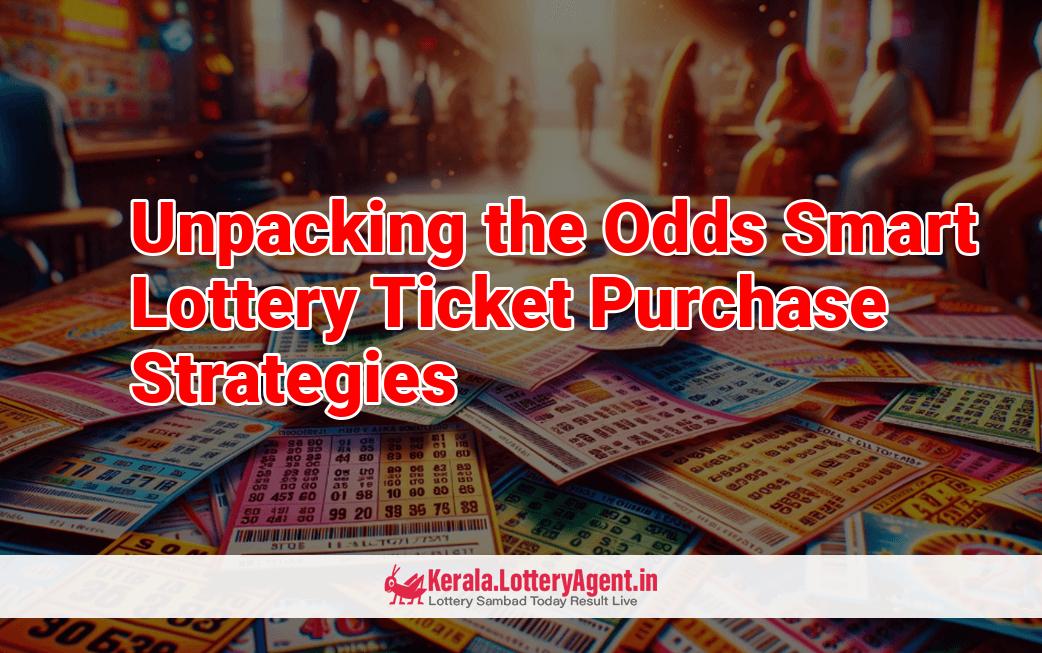
The Allure and Reality of the Lottery
The lottery holds the promise of a life-changing windfall, tantalizing players with visions of instant wealth. The lure of becoming an overnight millionaire inspires countless people to try their luck, yet the exceedingly high odds firmly stack the deck against them. With the likelihood of securing the jackpot hovering at one in a million—or even one in a hundred million—it’s easy to dismiss the endeavor as a fruitless pursuit.
Nevertheless, those seeking to boost their chances may contemplate purchasing an abundance of lottery tickets for a single draw. If this notion has crossed your mind, you’ll be pleased to know we’ve dissected the strategy to determine if it’s set for success within the world of lottery gameplay.
Does Buying More Mean Winning More?
Theoretically speaking, additional lottery tickets correlate to improved odds of a win. Consider the US Powerball, where matching five numbers plus a unique Powerball number could result in glory. The odds with a solitary ticket are 1 in 292,201,338. Doubling the tickets improves the odds to 2 in 292,201,338, and with three, it climbs to 3 in 292,201,338.
This arithmetic concludes that securing all possible combinations, amounting to 292,201,338 tickets, would guarantee a Powerball win. But with each ticket costing $2, the total investment spirals to an astronomical $584 million—an unrealistic sum for the average player, and hardly a wise return on investment even for those who can afford it, unless the jackpot is far in excess.
Rather than diving into a ticket-buying frenzy, adopting savvy lottery strategies might offer a smarter path forward. These approaches recognize that while your odds marginally increase with each additional ticket, buying a mass quantity to have a tangible effect is neither practical nor financially sound.
Diversifying Your Lottery Portfolio
A more pragmatic approach would be to distribute your ticket purchases across different lotteries. For instance, owning one ticket for multiple lotteries slightly elevates your overall winning odds, as you’re now eligible for several jackpots. This method compares favorably to purchasing multiple tickets for a single lottery, where the enormous number of possible combinations ensures the odds remain essentially unchanged.
Take Mega Millions, for example; a single ticket faces a 1 in 302,575,350 chance of winning. Buying a second ticket makes a minuscule improvement—now it’s 2 in 302,575,350. One would need to acquire a staggering quantity of tickets to make a significant impact on these odds.
Considering Smaller Lotteries
Focusing on giant lotteries with their colossal jackpots may seem appealing, but the towering odds make winning them an almost insurmountable task. Enhancing chances of securing a prize by playing lotteries with friendlier odds is a tactic that served Richard Lustig well—he won seven times by identifying lotteries that most frequently payout.
Smaller lotteries often present more favorable conditions for lottery enthusiasts, and, as data suggests, certain lotteries offer better winning odds, rendering them attractive alternatives to their mega-sized counterparts.
Record-Breaking Ticket Purchases
The record for the single largest purchase stands at 307,000 tickets, courtesy of Jerry Dagrosa who procured them on behalf of Gerald and Marjorie Selbee in 2011 for the Massachusetts Cash Winfall lottery. At $2 each, this equated to $614,000 in total outlay.
How Many to Buy for an Edge?
In light of all this, one might wonder just how many tickets to buy to improve winning chances without going overboard. The answer is surprisingly restrained—buy a single ticket. Spreading ticket purchases across multiple draws is a favored tactic, as buying more at once won’t meaningfully sway the odds unless you’re prepared to buy a literal truckload.
Opting for Separate Tickets
Yes, individual tickets for discrete draws are recommended. This strategy affords you new winning opportunities each time without affecting the odds per lottery.
Where to Acquire Lottery Tickets
Online platforms have revolutionized the ease and convenience of purchasing lottery tickets. Websites like TheLotter, LottoAgent, and Lottofy offer secure, streamlined services for lottery enthusiasts.
Regarding the transparency of the lottery, corporations that sell lottery tickets remain unaware of where big winnings go or the states that receive winning tickets. This reinforces the lottery’s nature—every draw is a game of chance with equal odds for all players.
Unpacking Thousand-Ticket Odds
If someone were to buy 1,000 lottery tickets, the odds would translate to 1,000 in the number of potential combinations. For example, in the Mega Millions, your odds would be 1,000 in 302,575,350.
When Is the Best Time to Buy?
Maximizing chances could come down to timing. Consider buying when jackpots are rolling and growing, when promotions are present, and when the odds are more appealing. Some believe in the luck of July, with historical data showing a high frequency of EuroMillions winners in this month.
Final Thoughts
Ultimately, the number of tickets you should purchase—whether for Mega Millions, Powerball, or any other lottery—relies on personal budget constraints and the sensible allocation of leisure expenses. More tickets indeed grant a proportional increase in win probabilities, but moderation is key to prevent overspending on an uncertain gamble.











